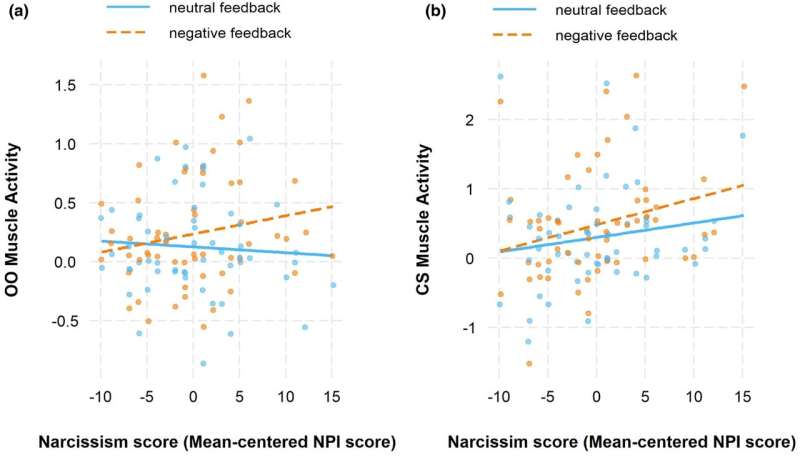
A team of psychologists at the University of Helsinki, working with a colleague from Millsaps College, has discovered, via experimentation, a clever, new way to detect narcissism in a person. In their study, reported in the journal Psychophysiology, the group measured physical responses to certain stimuli in people identified as having a narcissistic personality.
People with a narcissistic personality see the world as an extension of themselves, and because of that, they regard the needs of others as less important. Narcissists, it has been noted, tend to be stubborn and envious and behave in ways that suggest they feel entitled to whatever they desire. Psychologists have also found that such traits can make a person uncomfortable to be around and that others tend to respond negatively to such behavior.
They also note that narcissistic traits can be problematic for relationships, and for that reason, they have suggested that non-narcissists learn to identity people with such a personality before becoming heavily involved with them. Of course, it is not always easy to identify narcissism in another person, especially upon first meeting them. In this new effort, the researchers found a subtle cue that may help in such situations.
The researchers recruited 57 people previously identified as having a narcissistic personality. Each was asked to perform a series of challenging cognitive tasks. Then the researchers affixed sensors to parts of the subjects’ faces. Then, the volunteers were asked to listen to a critique of their performance. Some received high praise, others heard a neutral report, and a third group were given negative feedback. All of the volunteers were then asked how they felt about the tasks they had carried out and the feedback they received.
The researchers found that those volunteers who received a bad review unconsciously exhibited covert facial muscle reactions—tiny movements in their foreheads and in the muscles used to smile. But it only lasted for a fraction of a second. In poker, such a reaction would be known as a “tell.” For people considering forging a relationship with someone, it might be considered a warning sign. Either way, the observer must watch carefully, or they will miss it.
More information:
Ville J. Harjunen et al, Under the thin skin of narcissus: Facial muscle activity reveals amplified emotional responses to negative social evaluation in individuals with grandiose narcissistic traits, Psychophysiology (2023). DOI: 10.1111/psyp.14315
© 2023 Science X Network
Source: Read Full Article
